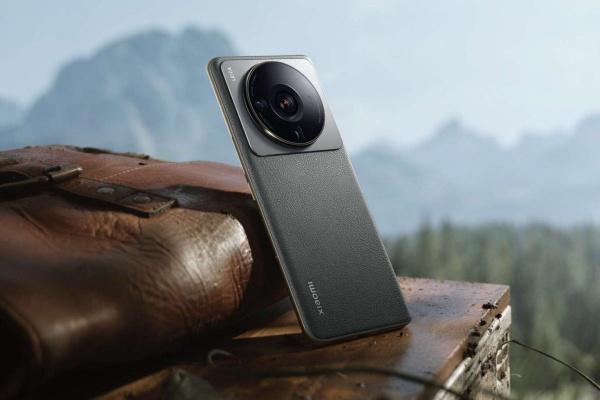Asia Xiaomi 12S Ultra Review: Large 1-Inch Sensor Works Wonders Ben Sin Contributor Opinions expressed by Forbes Contributors are their own. I cover consumer tech in Asia New! Follow this author to improve your content experience. Got it! Jul 28, 2022, 04:10am EDT | Share to Facebook Share to Twitter Share to Linkedin A product render of the 12S Ultra Xiaomi When Huawei’s mobile business was essentially crippled by U.
S. -imposed sanctions, it was assumed that Samsung would be the biggest beneficiary, after all, Huawei’s phone business was ascendant and was on pace to overtake Samsung as the number one phonemaker by market share. But while Samsung has definitely enjoyed the removal of a rival breathing down its neck, it is looking like Xiaomi has come away from this having gained the most.
The Beijing-based tech giant saw smartphone shipments rise 69% in 2021, with 54. 7% revenue growth year-on-year, according to its earnings report released last year. This appears to be Xiaomi snapping up most of Huawei’s former mobile customers.
And now, Xiaomi has also taken Huawei’s former mobile imaging business partner, too. Shortly after Huawei announced that its partnership with German camera maker Leica was ending earlier this year, Xiaomi announced it had entered a multi-year “strategic partnership,” and the first Xiaomi phone to use this new Leica co-branding has arrived: the Xiaomi 12S Ultra. Truth be told, Xiaomi’s Ultra phones were already very well received by tech reviewers and consumers in the last two years, and this new 12S model brings cutting-edge never-before-seen camera tech—the Leica branding is just the cherry on top.
Xiaomi 12S Ultra Ben Sin The main camera of the 12S Ultra is a new Sony IMX989 sensor co-developed by Sony and Xiaomi (Xiaomi invested $15 million into the sensor’s R&D and development). And it’s the largest sensor ever seen in a smartphone, coming in at 1-inch. It’s worth mentioning the actual IMX989 sensor doesn’t measure one full inch in physical size, but this somewhat misleading marketing is a camera industry standard, not Xiaomi’s doing.
MORE FOR YOU China Detains Fallen HNA Ex-Billionaire Chairman Ahead Of Airline Restructuring Vote Nasdaq Listing Of Freshworks Creates Windfall For Indian Founder And Hundreds Of Employees Ninja Van Becomes Singapore’s Newest Unicorn After Raising $578 Million From Alibaba, B Capital Whatever the case, this visual graphic showing the IMX989 next to other leading smartphone sensors really puts into perspective the size difference. The SonyIMX989 sensor next to the other Sony sensors used in other phones. Xiaomi Why a larger sensor matters In mobile photography, we often hear phone brands tout megapixel count or aperture size, and while both factors could help improve image quality, the most important hardware factor is sensor size, because the larger the image sensor, the more light it takes in.
And in digital photography, light is absolutely the most important factor. The Xiaomi 12S Ultra having such a larger sensor compared to something like an iPhone 13 Pro Max or even Samsung’s top dog S22 Ultra means the Xiaomi phone can consistently take in more light information, which includes dynamic range and details. It also helps give Xiaomi’s camera shallower depth-of-field for that professional bokeh look.
For example, notice in the below collage, Xiaomi’s image has stronger focus dropoff, not just separating the 360 camera from background wall, but also the wallet and phone as well. Xiaomi (left), iPhone 13 Pro (right) ben sin Leica color science So where does Leica come in? Well it helped Xiaomi fine tune color processing, resulting in that iconic contrasty Leica look with deep shadows and bright reds. An image captured by the Xiaomi 12S Ultra Ben Sin By the way, you can turn off that Leica watermark label at bottom of images — it’s actually off by default.
I just turned it on for these sets during testing. Xiaomi 12S Ultra image Ben Sin There are lots more photo and video samples in the video below. Ultra flagship components everywhere Everything else about the Xiaomi 12S Ultra is premium flagship, too.
The 12S Ultra features a 6. 7-inch 120Hz OLED display with a variable refresh rate between 1Hz and 120Hz, and it is powered by the newest Qualcomm Snapdragon 8 Plus Gen 1 chip that’s noticeably more energy efficient than the standard Snapdragon 8 Gen 1. Xiaomi 12S Ultra screen ben Sin The phone’s backside has this faux-leather finish that lends it a bit of class, and the bulky camera module is wrapped by a 24-karat gold ring.
There’s also a really good 5X Periscope zoom lens and an ultra-wide camera that grabs sweeping landscape shots. But it’s ultimately all about that main camera, with its huge image sensor. Night shots are clean and remarkably noise-free even without the need to resort to night mode.
A Xiaomi 12S Ultra night shot. ben sin China only for now, unfortunately The Xiaomi 12S Ultra is unfortunately, only sold in the mainland China market for now, but the price is very attractive, at about the equivalent of $900, this has made importing the phone an enticing options for phone fans. Whatever the case, the Xiaomi 12S Ultra is Xiaomi flexing its hardware prowess, and signaling to even mainstream U.
S. tech media which don’t often cover Xiaomi that this phone camera is legitimately “incredible ,” at least on a hardware level. Increasing camera image sensor size is the next frontier for smartphones to venture into (Apple, for example, made a big deal about increasing the sensor size of the iPhone 13 last year during marketing), and Xiaomi has laid the path on which other brands will surely follow.
Follow me on LinkedIn . Check out my website or some of my other work here . Ben Sin Editorial Standards Print Reprints & Permissions.
From: forbes
URL: https://www.forbes.com/sites/bensin/2022/07/28/xiaomi-12s-ultra-review-large-1-inch-sensor-works-wonders/
